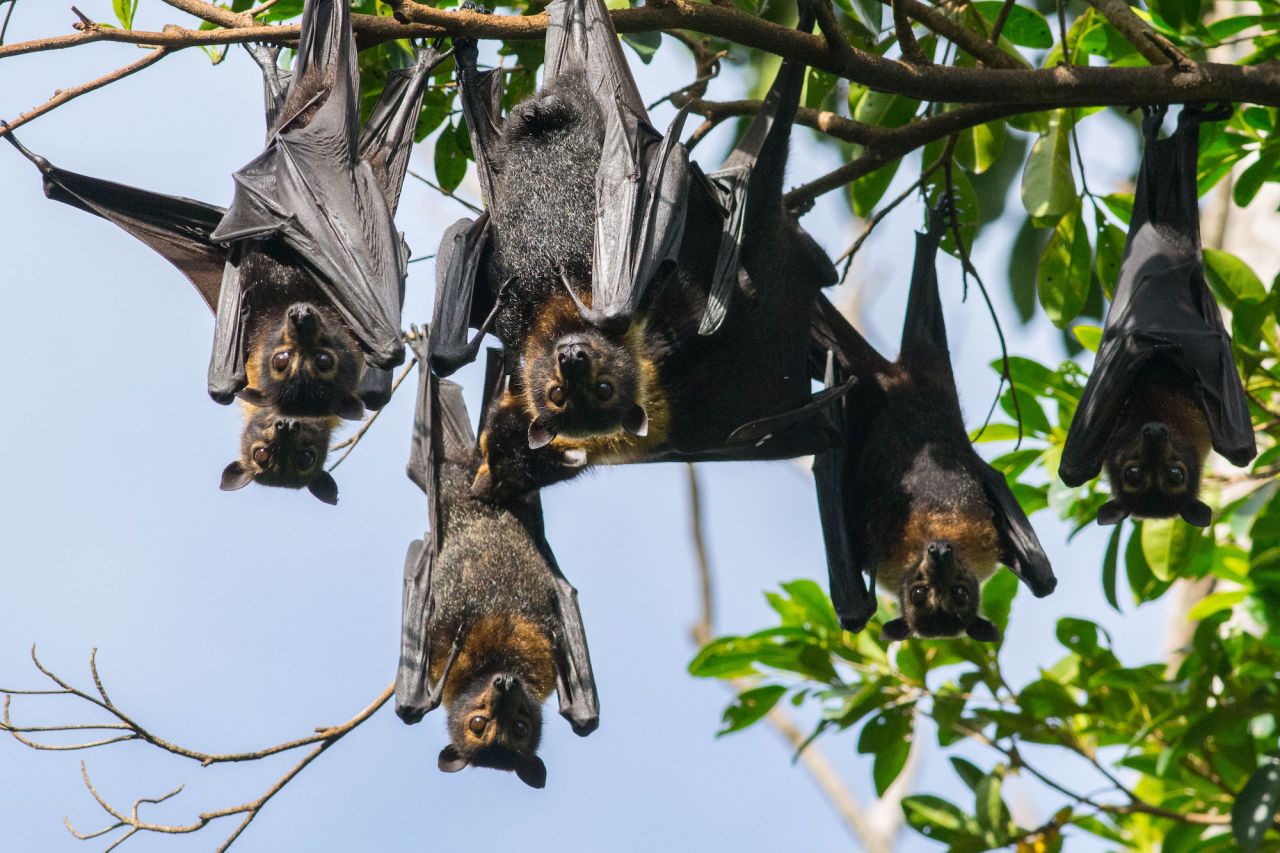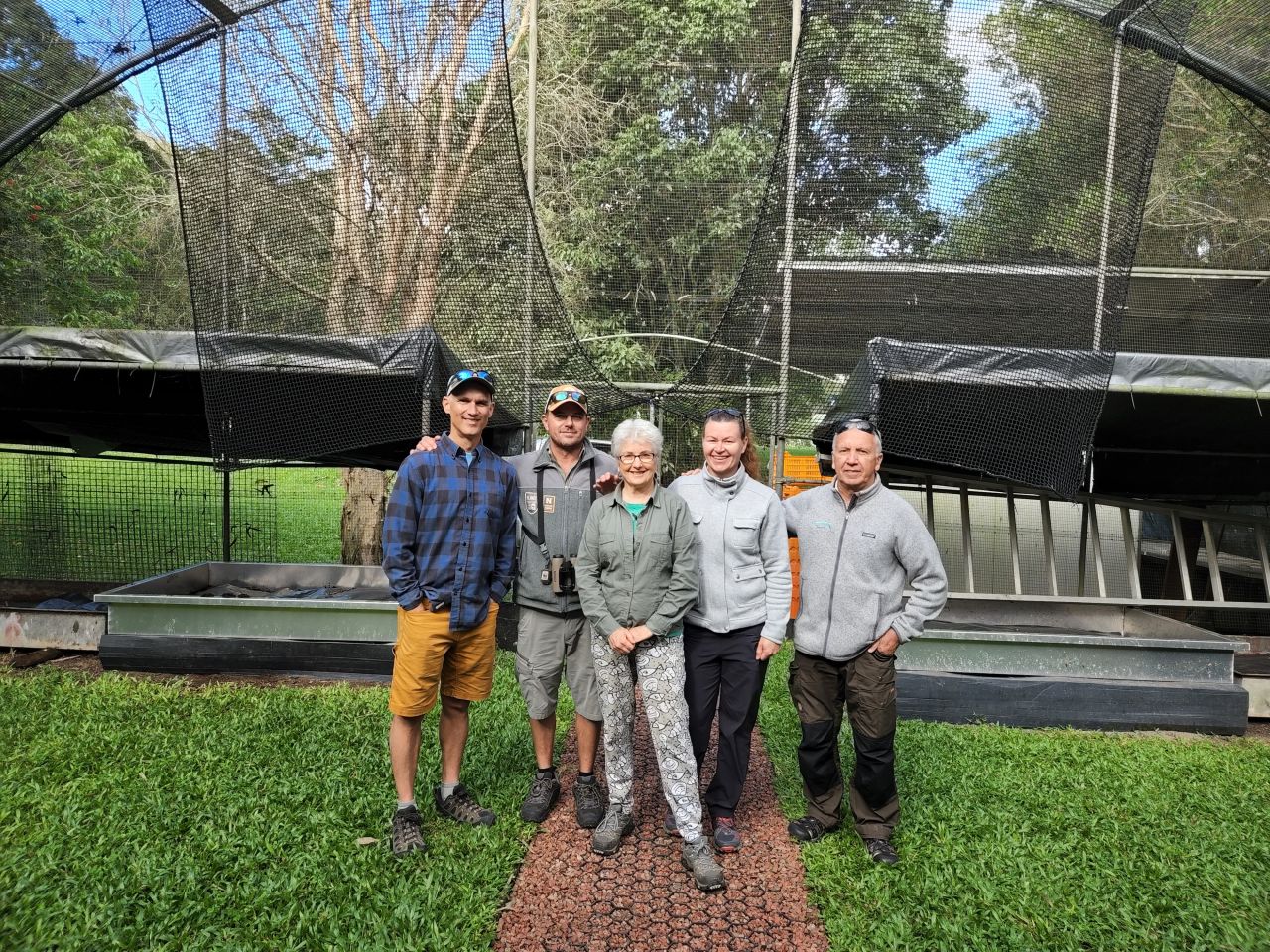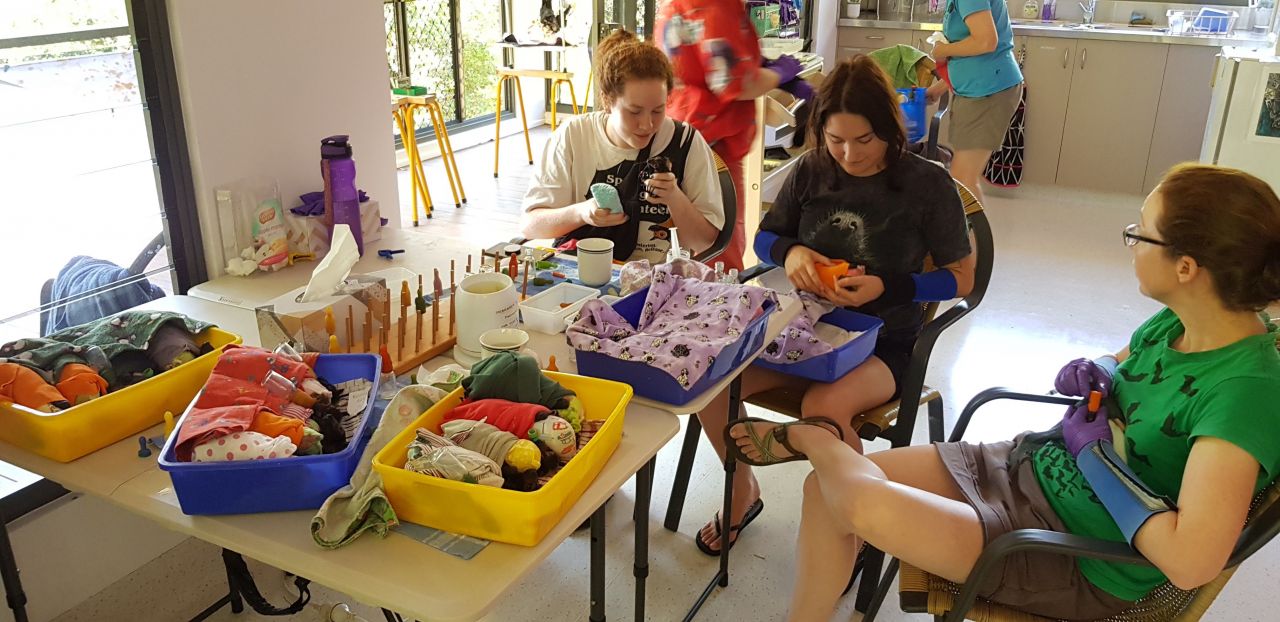Jenny Mclean has extensive knowledge about bats and has dedicated the last two decades of her life to their wellbeing and conservation. "We started Tolga Bat Hospital in 1990, and now we're the largest bat rehabilitation and tourism facility in Australia, caring for up to 1,000 bats each year," she says. "We're helping local bats, and we're focused on transforming the public's perception of bats."

Spectacled Flying Foxes. Image: FNQ Nature Tours.
The Bat Visitors Centre has won multiple awards over the years, and in June 2023, Jenny received her Medal of the Order of Australia (OAM) for outstanding contribution to animal welfare through her work at the Tolga Bat Hospital.

Jenny with guests. Image: FNQ Nature Tours.
When guests from FNQ Nature Tours visit the hospital, they're offered an insider's view into the world of bats, hearing firsthand about insect-eating microbats, fruit and nectar bats, and learning how the Tolga Bat Hospital team cares for these mammals. They also learn about the various threats they face, and what can be done to better protect and preserve these remarkable creatures.
"Bats come into our care through our rescue, rehabilitation and release program, but some live here permanently because they could not survive in the wild," Jenny says. "We take FNQ Nature Tours guests to meet the bats and talk about why they're here."

Volunteers caring for flying foxes. Image: FNQ Nature Tours.
Although guests are able to meet a variety of species, the primary species Jenny and her team work with is the endangered Spectacled Flying Fox. Jenny explains that paralysis ticks are killing hundreds of Spectacled Flying Foxes on the Atherton Tablelands every year. "The ticks rarely affect flying foxes elsewhere in Australia but here they're affected in large numbers. We don't know why, but we're working with the University of Queensland on a number of research projects about this very topic," Jenny explains.
"It's tick season from October to December, and when we go into the colonies, we find them paralysed on the ground. We can end up with hundreds of orphaned babies, but are able to release most of them back to the wild when they are about five months of age."
Related Experience - 4 Day Nature, Wildlife & Conservation Safari
Far North Queensland is a wildlife enthusiast's paradise with this small group tour concentrating on the endemic wildlife found within Australia's most biodiverse region.
Conservation In Action
-
Participate in citizen science programs to document vegetation and wildlife in the region
-
Financial support towards Rainforest Rescue, Tolga Bat Hospital & Wildlife and Raptor Care Queensland.

